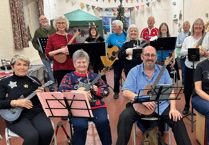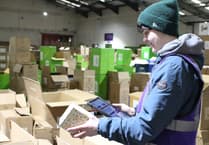Pembrokeshire County Council officers are conducting visits in response to a ‘bird flu’ incident in the Roch area of the county.
Following the identification of Highly Pathogenic Avian Influenza in poultry at a site near Roch in Pembrokeshire, a declaration of an Influenza Protection Zone and wider Surveillance Zone surrounding the Infected Premises has been implemented by the Chief Veterinary Officer for Wales.
Officers from Pembrokeshire County Council’s Public Protection Division will be visiting addresses within the 3km Protection Zone around the site, to identify locations where poultry and/or other captive birds are kept and to provide information on restrictions that currently apply to help prevent the spread of disease.
The Council’s officers are working in support of veterinary colleagues from the Animal and Plant Health Agency who are managing the response to the incident.A map showing the extent of the zones and restrictions that apply can be seen on the Welsh Government website: https://www.gov.wales/haverfordwest-pembrokeshire-avian-influenza-protection-and-surveillance-zones-declaration-24-june
It is vital keepers of birds remain vigilant and ensure they have the very highest levels of biosecurity in place.
Responsibilities of people who keep birds:
• All keepers of kept birds should be vigilant for signs of the disease such as increased mortality, respiratory distress and drops in food or water intake, or egg production.
• Consult your veterinary surgeon in the first instance if your birds are unwell.
• If you or your vet suspect that avian influenza could be causing illness in your birds, you must, by law, report this to the Animal and Plant Health Agency Wales on 0300 303 8268. This will trigger a disease investigation by APHA vets.
• You must apply strict biosecurity measures to prevent any materials, equipment, vehicles, clothing, feed or bedding that could have been contaminated from wild birds coming onto your premises.
Full details and checklist are available here: biosecurity and preventing disease in captive birds.
The UK health agencies advise that the risk to public health from the virus is very low and the UK food standards agencies advise that avian influenza poses a very low food safety risk for UK consumers.
Members of the public who do not keep birds can help by reporting dead wild birds.
If you find dead wild waterfowl (swans, geese or ducks) or other dead wild birds such as gulls or birds of prey, you should report them to the Defra helpline on 03459 33 55 77





Comments
This article has no comments yet. Be the first to leave a comment.